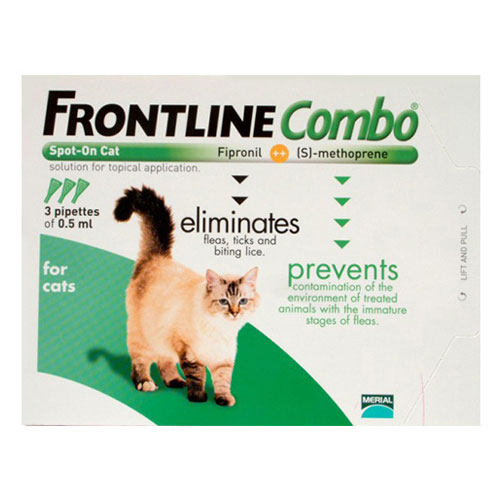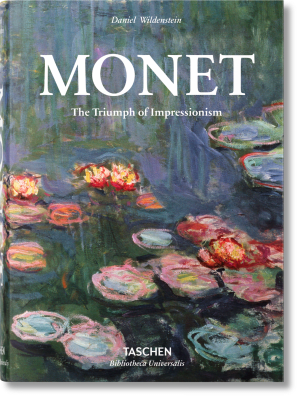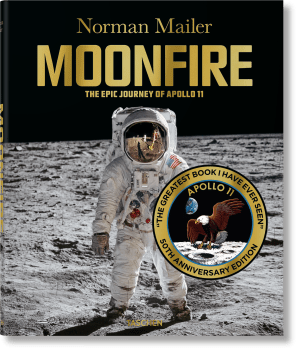Way back in second grade, I was good at math. I enjoyed it; it felt good to be good. One day I brought home a test result (oh my! a test…how abusive!).2 My parents’ reaction was positive, understandable, and well-intended, even loving, but it sent me far enough downhill that I intentionally failed the next test. I simply marked down mostly what I knew to be wrong answers.
What was their big offense? They called me “an Einstein.” They labeled me. No matter that this was a positive gesture, something in my young self recoiled at the dehumanization of being labeled. Later in life, I came to dislike other labels inherent in comments like, “you are so smart.” I don’t disparage or blame dear mom and dad, but what might they have done instead? Realizing the greater and more intrinsic pleasure was in the accomplishment itself, they might have said, “You can really be pleased with that…we are.”3
You’ve heard of the “learning moment”? That bit where parents, teachers, and others in authority mustn’t waste any opportunity for a lesson to be drawn and delivered on the spot from some happenstance occurrence? National Geographic even made a program out of the concept, encouraging teachers to create ready-made learning moments in the form of photographs.5 Great idea, learning moments, and yet it can be taken too far, as in the parent that tiresomely makes every moment a learning moment.
And yet. And yet…there’s something in the notion of life-long continual learning. The problem is when it’s centered in learning rather than in moments. A moment is a bit of beautiful, if fleeting, enjoyment. It’s not that we pause to learn, we pause to enjoy — the learning is a by-product (even if an intentional one). And it’s reductive to say that the joy is in the learning. Yes, there’s joy in learning, but first the joy is in a moment.Yes, there’s joy in learning, but first the joy is in a moment. If we do it well, the joy and the learning are coincidental and simultaneous, and of the two, the joy is the more fundamental.
Maybe it’s fascination with a strangely colored insect. Or feeling power-of-place in connecting history class and the spot marked by a roadside sign. It could be compassion sparked, as well as drive and motivation engendered, by a neighborhood with rundown housing.
BudgetPet
The joy has endless forms when connected to the lifeblood of heart and soul and personhood rather than being didactically reduced to pragmatic knowledge acquisition.
Movies, roller coasters, and beyond
Upon arriving at an amusement park, any amusement park, I run for the roller coasters. The more roller coasters, the better. Up, down, slow, fast, around the bend, upside down, right back to where you started. It’s pure fun.
A movie can be like that: A fun ride that leaves you in the same place you started from. It’s wonderful. We need the richness, joy, and life a Friday fun film brings — both in the moment and in reliving it with friends that have been on the same ride. I may enjoy a film more, even much more, in the reliving. I have laughed and smiled many, many times remembering and mimicking scenes from Monty Python and the Holy Grail — and I barely laughed at all watching the film.
Such moments are wonderful to enrich our lives, refresh us, brighten our spirits. And a film may take us a step further, reminding us of what’s important in life, giving us a new perspective on a social issue, or opening some new thought pattern. And when it’s done that, the film has taken a step beyond the roller coaster.
The story goes (though I have not found a reference to validate it) that, with passersby-on-the-street, Robin Williams had a much different experience with some films than others. With a film like Moscow on the Hudson, people would boisterously say, “Great film!” or “Laughed out loud!” But with Dead Poets Society, they would say, solemnly, just “Thank you,” or maybe remark about the impact it had on their lives. I would have been one of them, had I crossed paths with him.
In going beyond the roller coaster, films like Dead Poets become something of an odyssey.In going beyond the roller coaster, films like Dead Poets become something of an odyssey. They leave us in a much different place than where we started. And even if they take us right back, we are different for the ride. Or, at least some of us are.
As the credits rolled and the theater lights came up at the end of Schindler’s List, my wife and I sat a bit stunned. But a lady down the aisle was upset. She stood and huffed, “Well! They call that ‘entertainment’?!” Apparently, she came out for a roller coaster ride, and she wasn’t about to be dragged on no odyssey.
And there’s the rub: It’s really not so much the film that makes it a Friday fun film or something beyond, but the filmgoer. Art, whether film, popular or classical music, modern or traditional visual art, novels, dance, poetry, photography, sculpture, performance art — any manner of creation — can be much more than entertainment, but how we engage any given work determines whether this is true for us.
Getting better…getting better all the time
“Oh no,” I can hear some saying. “Here’s where the preaching starts. He’s gonna tell us how we ought to watch a movie.”
It's the moment, the beautiful moment, and if in that moment I also learn and grow, it becomes beautiful twice over.Well…if you put it that way…yeah. I suppose I am.
But that’s not how I see it. It’s not an “ought to” as if I ought to do well on a math test, it’s a “get to” as in I get to have the joy of doing well on a math test. It’s the moment, the beautiful moment, and if in that moment I also learn and grow, it becomes beautiful twice over.
I wonder, though, how many of us actually care about getting better. I hope it’s many of us. I hope that, for you, getting better as a person is a thing to enjoy. But I fear it’s only enjoyment that we enjoy, and by whatever means it may be had. There’s an abundance these days of people whose enjoyment seems to be in thinking they’re better than others, especially better than anyone on the opposite political side, and better enough to be self-appointed radical change agents to make the world better. But actually better? It’s seems not when the tactics used for changing the world — labeling groups, hateful callouts, forced compliance, silencing dissent (the tools of fascism, by the way) — are antithetical to the proposed future world.
All that aside, even when we do want to get better, it’s quite difficult to do. Maybe you’ve seen clearly how to be your better self, but you didn’t become your better self. Maybe a close friend dared telling you some cut-to-the-heart truth about you. Maybe you even wanted the change, yet still, nothing.
It’s not really talking that results in change, especially change that lasts over the long haul (or the short haul, for that matter). Doing Good things is a matter of our hearts and how they are formed. To the degree our hearts love Good things, Goodness tends to flow from us. But if our hearts aren’t there on any given point, talking is a poor way to get them there. Yeah, our heads can override our hearts, for a time, and so that we do Good things even though we don’t like doing them. But, even though this type of do-good rule-following may be a useful step toward change, we’re not who we need to be until our hearts truly love what’s Good. So if talk doesn’t do it, what does?
When we tell a child to not touch a hot stove, they know about burns. But, burns are abstract theory until skin is charred. It’s not head-level information, but heart-level re-formation that defines who we are.It’s not head-level information, but heart-level re-formation that defines who we are. Not only that, perhaps the child who disobeys, not the obedient one, has, through the pain experience, gained the better understanding of burns. But if we can spark a child’s imagination, perhaps by showing a photograph of touch-stove aftermath and reminding them of the pain they felt with a badly skinned knee, the child may approximate the disobedient one’s understanding of burns.
Transformative experience does the job of heart-change much better and more permanently than talk. When an experience drives home some striking emotional impact, we change — or a past change is reinforced. If lasting change does come when a thing is told to us, it’s because we’ve been the imaginative child, and the image of burnt flesh has driven home the emotional impact to effect change.
Inside out, backhanded change
A great film gives us the opportunity — if we take it — of not merely watching a story, passively, but of actively going through an experience. We live life, for a time, in someone else’s shoesA great film gives us the opportunity — if we take it — of not merely watching a story, passively, but of actively going through an experience. We live life, for a time, in someone else’s shoes. and feel the world from their perspective. We’ve been the child that touched the hot stove. Or the emotionally damaged young man who broke through, returning from an odd delusion to more typical relationships. Or the glitzy millionaire whose money couldn’t win him the girl. Or the girl who stood up to a twisted society, found hidden support from others, and toppled the system.
The film experience can change us. As the film takes us to new places and shows us new people (real or imaginary), and as the good and bad of life play out before us, we have a chance, a choice, to enter the film’s world. The more we let go, the more we actively engage our imaginations and live in the film’s alternate reality, the more deeply we feel the film’s impact. We are drawn toward the Beauty we see, and our hearts begin to re-form, aligning with that Beauty. Or, we are repelled by ugliness, pushed away from it, longing for and redirected toward the Goodness that was missing.
BudgetPet
Perhaps we come away better able to relate to people with intellectual disabilities or mental health issues. Maybe we see more clearly our own tendencies to manipulate what wealth we may have, hoping to win some prize. Or we have more courage for whatever fight we face.
The better the filmcraft, the more likely we’ll get it: We see how the world works and the things that people do and, if we’re watching closely, we realize what we ourselves are doing — or not doing. The deeper we feel what the film is doing, the better it can pull our hearts in the direction they should go. We get better from the inside out.
We may enjoy seeing ourselves in likeable characters in a film — and it’s good to be drawn toward wonderful people that we long to be like — yet if we’re open to it, the biggest change may come, in a backhanded way, from characters we don’t like. Experiencing the ugliness of bad characters in the film, we’re tempted to say, “Oh, I’m not like that.” Really? Not at all? The question is not whether we are like them, but how much we are like them. A little bit? A little more? Okay sometimes a lot? If we allow ourselves to see reflections of our own ugliness, we may be repulsed at what we find, which can push us toward getting better. Whether by being drawn toward characters’ goodness or pushed away by their badness, we can feel, then see, a clearer picture of ourselves.
Moralistic, preachy films don’t do so well at this. Some films present quite clear and direct messages, aiming to be squeaky clean in their content, crafted to lay direct moral obligations on us. They speak primarily to our heads, presenting issues in simplistic ways that ignore life’s complexity and nuance. It sounds good but doesn’t ring true. To grab our hearts, the best films take us through something real, even complex and messy, wrestling with issues as mixed and tough as what we do in our real lives.
And to get better, it’s Love that defines who we need to be. Sentimental though it may sound, human good derives from the foundation of loving others: family, friends, acquaintances, people on the other side of the world. And though the feel-good-I’ll-be-kind-to-you-if-you’re-kind-to-me sort of love is nice, there’s a deeper foundation underneath this cheap type of love: loving Goodness itself. Goodness is the core within us that gives direction to Love.There’s a deeper foundation underneath this cheap type of love: loving Goodness itself. Goodness is the core within us that gives direction to Love. Goodness doesn’t ignore another’s failures and shortcomings, it loves in spite of them, longing for and staying open to restoration and reconciliation. It’s the source of the good feeling doing well at second-grade math, of wanting to continually grow, and of specific character qualities like acting well toward reducing unseen racial bias. If we are becoming who we need to be, it’s because we are learning how every little thing is (or is not) an act of Love born of Goodness.
Broken tools, open hands
Rakuten Kobo sells audiobooks and e-books in partnership with Walmart
But wouldn’t you know it: There’s a problem with all this. It depends on seeing Goodness clearly. Else a film’s impact might go either way: We may get better or worse. Without clear sight, we may latch onto and emulate an ugliness in a film, thus coming away less loving. Or we’re blind to the unavoidable biases and unasked questions in a documentary, and we buy the line it feeds without thinking. We may get sidelined by something incidental in the film and miss its central themes. We may not open ourselves enough to be changed.
We can’t fully trust our hearts — we can feel something is Good when it’s really not. Nor are our minds any more trustworthy: We can reason our way down many a dead end path, thinking we’ve found an oasis of clarity. They’re both broken tools. Where’s the solid ground? Nowhere, really. The most solid ground we have is humility. When we know the difficulties of truly knowing, when we reject our prideful self-assurance, we become softer and more open to listen.The most solid ground we have is humility. When we know the difficulties of truly knowing, when we reject our prideful self-assurance, we become softer and more open to listen. We become correctable. We can let a film, or another human, or most anything wake us up.10 We become continual learners to the core.
Our heads and hearts work together, and great films are (really most any film is) but one source of rich outside input for our hearts and minds to take in. We may yet hold to our current understanding of life but, holding that understanding lightly with an open hand, we are willing and ready to be changed. We listen first, aiming to grasp fully the impact of a film and let its questions hover in our lives. Only then do we sort whether the better way is in the film or our current manner of life or, more likely, a mix of the two. Openness becomes our way of engaging the world.
Film takes us where we can’t go. We need transformative experience but we can’t — and if we’re smart, we don’t want to — go everywhere we’d need to to experience everythingCome to the theater open, ready, and expecting to go away changed. we ought to to get better in all the ways we should do. Film can vicariously take us to new places and bring us through experiences that enrich and transform us, and all the more so if we come to the theater open, ready, and expecting to go away changed. What we experience through film can spur us on to deeper thought and, better yet, deeper feeling about what’s Good and True and Beautiful.
Endnotes
1 From the song 'It's Alright, Ma (I'm Only Bleeding).'
2 Okay so I'm not a troglodyte. I understand key risks and misuses of school grades, it's that I see also unbalanced and over-extended arguments about moving exclusively in the 'no grades' direction. For example, in THNK's mostly valuable article, "3 Reasons Grades are Bad for Education" (accessed September 5, 2020), they raise very important concerns, yet the logic has some missteps. They point out the "futile and vain feelings" that grades can engender, without discussing whether or how such feelings might be mitigated by growing a different culture around grades. They say grades are efficient, but in context this is mostly a pejorative statement that does not consider potential benefits of the efficiency to students (even within the broader and richer feedback loop they advocate). They speak of placing "too much importance on grades" as if that's the only way to treat them.
3 Was my good feeling of accomplishment one of the "vain feelings" that THNK speaks of (see prior endnote)? Perhaps, and even more to ponder is the question of whether, even if it was not, it was putting me on a path to such. Yet satisfaction in a given level of accomplishment is and should be a reward in and of itself.
4 The first known reference to this quote appears in a 1942 issue of Reader's Digest. See https://quoteinvestigator.com/2012/05/26/stumble-over-truth/. Accessed July 21, 2020.
5 Introducing Learning Moments. Accessed September 5, 2020.
6 Moriarty's Rumblings From The Lab #14 — Interview with Miyazaki. Accessed September 6, 2020
7 Paine, A. Bigelow. Mark Twain: A Biography: Volume 2: 1886 - 1910. Jazzybee Verlag, 2018, p. 262.
8 Chesterton, Gilbert Keith. Orthodoxy. John Lane Company, 1909, p. 174.
9 Ciment, Michel. Kubrick. Holt Rinehart Winston, 1982, p. 196.
10 I can't say the phrase, 'wake up' without going straightaway to the classic Richard Linklater film, Waking Life. That's all I'll say. Watch the film.







